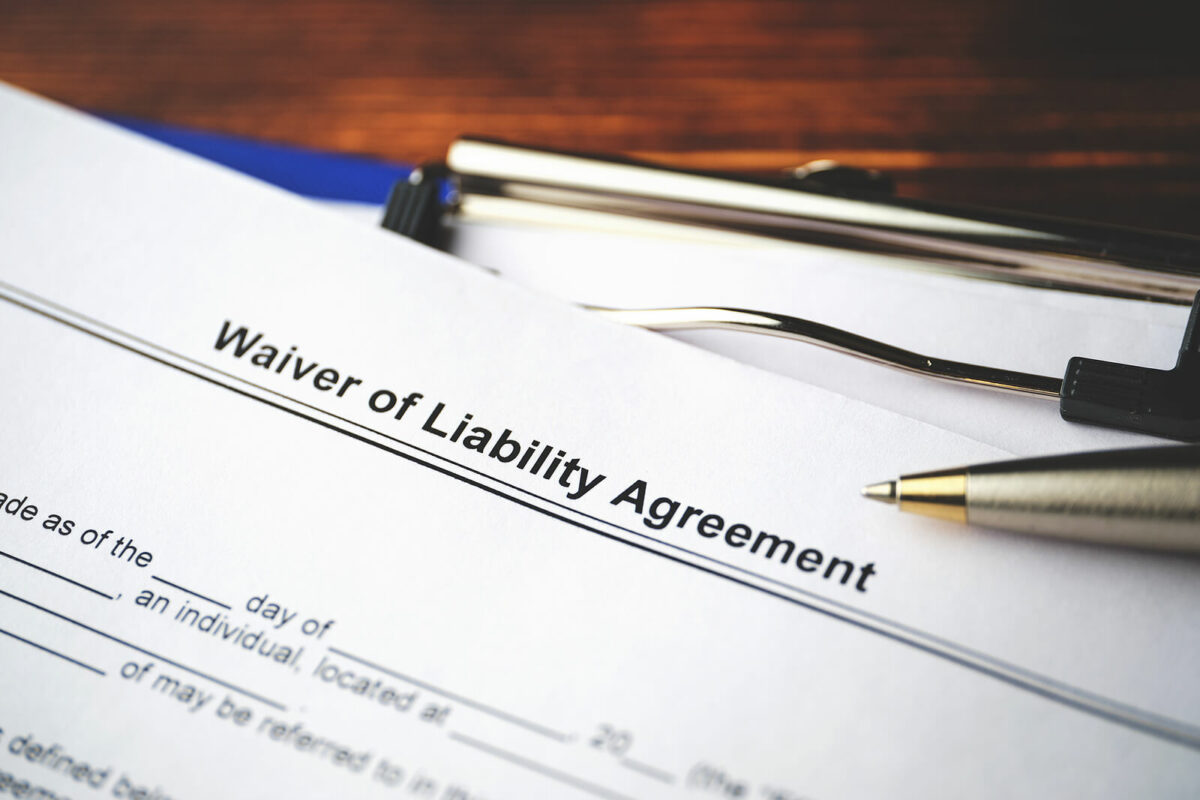A liability waiver is often required to participate in activities at sporting facilities and theme parks. You may be asked to sign one if you run or go on a ride, join a gym, or go skiing. Signing up with a local sports league might involve signing a release form.
But does signing a liability waiver totally exclude you from filing a personal injury claim when necessary? To answer that, here’s a look at how a liability waiver works and when it may or may not be valid.
What Is a Liability Waiver?
The document you sign is known as an exculpatory contract. Its purpose is to attempt to excuse or relieve a party of liability for injuries that occur due to inherent risks of an activity. Contract law generally applies, so the release must be well-drafted to be accepted by the courts.
A waiver also triggers an assumption of risk defense. This means an organization provided adequate warnings to participants about the risks, and the person voluntarily decided to assume them. These risks can be known and unknown. Whether the signee is an adult or minor, they must be capable of understanding the risks, the language used in the document, and instructions or safety briefings provided on-site.
What Rules Must a Liability Waver Follow?
For a release form to be enforceable, it must be:
- Clearly worded and state its intent to relieve the party of any and all legal liability.
- A standalone document with obvious meaning, and not hidden within fine print.
- Signed by the participant it is being used against.
- Unequivocal, and apply to all situations that it governs; circumvention of terms is not allowed.
- Specific in its language, as to what liabilities are limited.
Business owners must make sure the language is clear and specific. Consumers must read the content of the document and be cautious about signing away legal rights that could prevent them from seeking damages should they be injured.
A liability waiver cannot be commingled with another document/form and its wording must be free of legalese or unclear, ambiguous phrasing.
Invalidating a Liability Waiver
A liability waiver can be invalid for a number of reasons. First, it cannot disclaim responsibility for intentional harmful acts, gross negligence, or conduct that puts the participant at risk. It can’t do more than disclaim responsibility for ordinary negligence.
The document must also not go against state law. It should have phrases that say something like it releases the entity from negligence to “the fullest extent permitted by law”. This gives the court an ability to consider the validity of the waiver in regard to state law.
Also, the waiver should open with “In consideration of being allowed to participate…”, meaning all parties receive consideration in order for the release to be valid. This consideration, on the player’s/parent’s part, is the right to take part in an activity; on the organization’s part, it is a promise by the signee not to sue. The document therefore offers something of value to both parties.
Another requirement is that a waiver must be signed voluntarily. Commingling of waivers with other contracts or having participants sign a wavier in groups (or while waiting in line) and thus making them feel rushed can allow attorneys to find ways to negate the contract. It may then become possible to sue the organization later.
Contact The Law Offices of Jacob Emrani
In many cases, signing a liability waiver is not a done deal. If you, a child, or other loved one has been injured due to an organization’s negligence, we can determine whether a release form was invalid. Our Los Angeles personal injury attorneys fight for our clients’ rights to help them win the financial compensation they deserve. To schedule your free consultation, call us at 888-952-2952 today.



